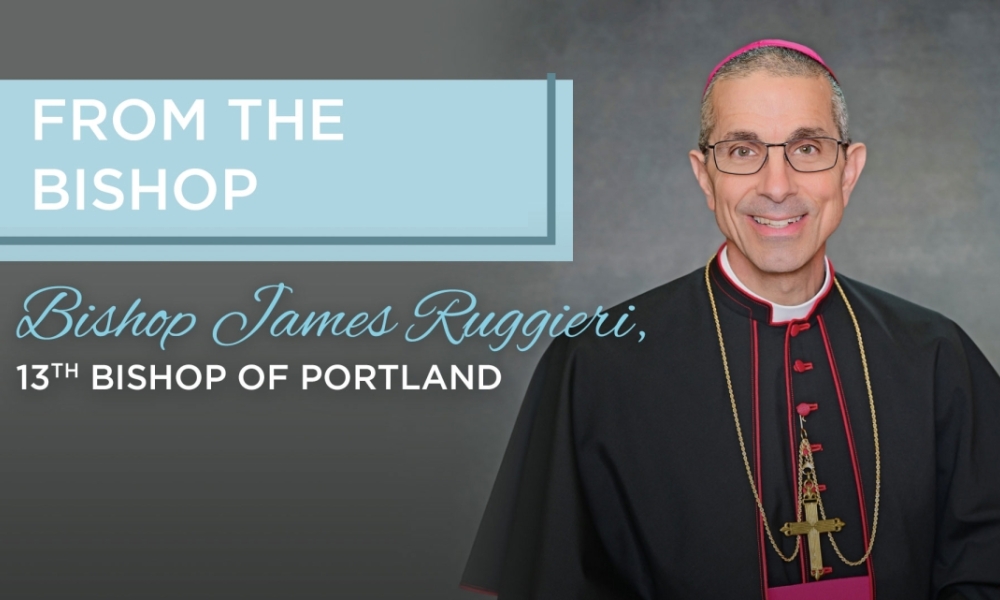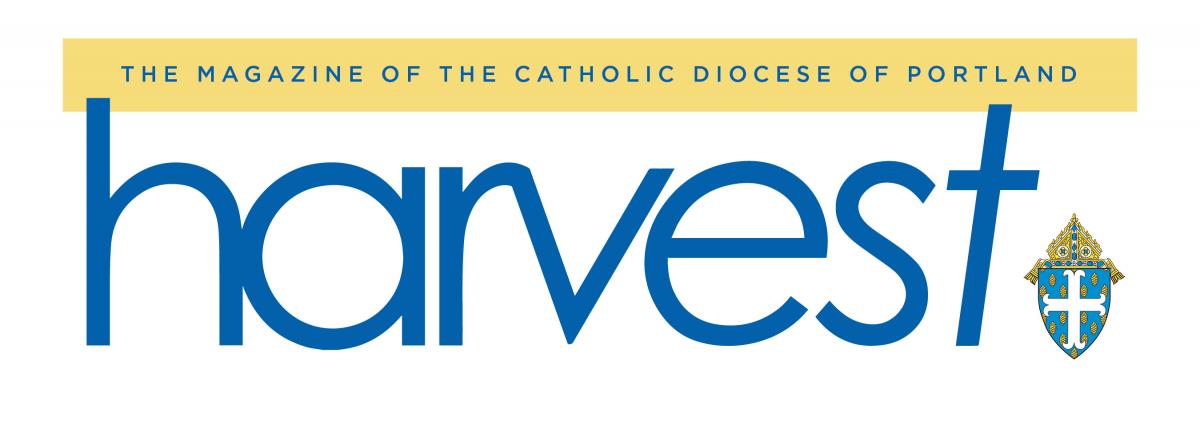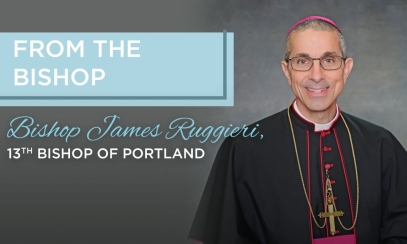
Living and Renewing the Mission: Pastoral Priorities
The mission of the Church is timeless: to proclaim Jesus Christ, to bring people into communion with Him, and to build the kingdom of God here and now. In every age, this mission is renewed, expressed, and lived through God’s people. Today, as missionary disciples, we are called to constantly listen to the Holy Spirit and respond with clarity, courage, and hope. We are called to be protagonists of the mission.
The mission of the Church is timeless: to proclaim Jesus Christ, to bring people into communion with Him, and to build the kingdom of God here and now. In every age, this mission is renewed, expressed, and lived through God’s people. Today, as missionary disciples, we are called to constantly listen to the Holy Spirit and respond with clarity, courage, and hope. We are called to be protagonists of the mission.
Since becoming bishop, I have spent time praying, listening, and visiting communities across Maine. I have seen the deep faith of our people, the dedication of our priests, the vitality of our parishes and schools, and the challenges we face — declining numbers of those receiving the sacraments of baptism, Eucharist, confirmation, and matrimony, cultural shifts and accompanying indifference to the Church, and the pressures of modern life. From this prayer and consultation, I have identified four pastoral priorities to guide our diocesan efforts in this coming year to be a mission-minded, mission-driven Church: priests and priestly life, Catholic education, parish vitality, and evangelizing younger generations.
These are not simply “projects” for the chancery or programs for parishes. They are an invitation to carry out the mission of the Church by focusing on areas vital to the mission. Overall, it is an invitation to help build up the body of Christ here in Maine.
Priests and Priestly Life
At the heart of every parish is the Eucharist, and at the heart of the Eucharist is the priesthood. Our priests bring Christ to us in the sacraments, preach the Gospel, and walk with us in moments of joy and sorrow. Supporting and strengthening the life of our priests must therefore be a priority for the whole Church.
This year, we are working to support our priests in tangible ways. That includes hosting gatherings for retired priests to build fraternity and offer spiritual support, appointing a vicar for senior priests to coordinate care and outreach, and reshaping our annual Clergy Institute to become days of priestly renewal and fraternity.
At the same time, we must look to the future. Priestly vocations don’t just happen. They are cultivated. We are expanding our vocations ministry, appointing an associate director of vocations, hosting Andrew Dinners for young men to hear firsthand about priestly life, and holding Holy Hours for vocations throughout the diocese. When the Church prays for and encourages vocations, the Holy Spirit moves hearts.
Catholic Education in the Broadest Sense
Catholic education is about much more than schools. It’s about passing on the Catholic faith at every stage of life. From our catechists preparing children for first Communion, to Order of Christian Initiation of Adults (OCIA) leaders walking with new Catholics, to parents teaching the faith at home, education is the way we form disciples, strengthen families, and build a culture of truth and charity.
In Year One, we are looking at every level of Catholic education. A working group will propose a revised restored order model for the sacraments of initiation, with family catechesis as a central component. We will support our Catholic schools with a new initiative — the Cabrini Initiative — to encourage innovation, faith formation for faculty, and support for rural and underserved areas. We are also preparing for the opening of two Chesterton academies by 2026, expanding access to classical, faith-centered education on the secondary level.
Homeschooling families are also an important part of our diocesan family. We will host a Diocesan Homeschool Summit in 2026, offering resources, formation, and connection for Catholic homeschoolers across Maine. Education is a shared mission, a mission that strengthens the whole Church.
Parish Vitality
The parish is where people experience the Church most directly. It is where we are baptized, receive the Eucharist, and build community. But it is also where we can lose touch if parish life grows stagnant or becomes unwelcoming.
This year, we are hoping to launch a campaign to invite back those who have drifted away and to strengthen our parishes as places of hospitality. Welcoming ministries, hospitality training, and creative outreach will help us open our doors and our hearts wider.
We are also deepening our commitment to a culture of life in every parish. This includes renewed promotion of the USCCB’s Walking with Moms in Need initiative, greater teaching on the dignity of life, and intentional outreach during October, which we will dedicate to life-affirming ministries and witness.
A vital parish is not simply one that is busy; it is missionary. Our goal is that every parish in Maine becomes a place of encounter with Christ and a beacon of hope for its community.
Evangelizing Gen Z and Millennials
Finally, we cannot ignore the growing gap between younger generations and the Church. Many young adults are searching for meaning and belonging, but they often don’t see the Church as a place where their questions are heard.
We are responding with initiatives that listen and engage. This year, we will form a Campus Ministry Council to coordinate efforts at colleges and universities and create a Diocesan Young Adult Advisory Council to bring the voices of young Catholics into the diocesan planning process.
Evangelizing younger generations is about authenticity, not gimmicks. It’s about walking alongside them and witnessing to the joy of the Gospel together.
Moving Forward Together
These four priorities — priests, education/faith formation, parish vitality, and young adult evangelization — are a starting point, not an endpoint. They are Year One goals that will grow and evolve with prayer, experience, and the guidance of the Holy Spirit.
I am deeply grateful for the collaboration of the priests, deacons, lay leaders, educators, and families across the diocese. This is not “my” mission; it is our mission, entrusted to us by Christ.
As we move forward, I ask for your prayers and your active involvement. Whether it’s attending a Holy Hour for vocations, volunteering at your parish, supporting Catholic schools, or reaching out to a young person searching for hope, you are part of the mission of the Church in Maine.
May the Lord bless our efforts. May Mary, Mother of the Church, intercede for us. And may we walk forward in the power of the Holy Spirit, confident that “the One who calls us is faithful…” (1 Thes 5:24).

